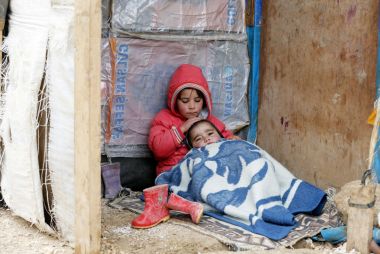Lebanon's refugee crisis sparks border clampdown
Lebanon has moved to curb the flow of refugees from Syria by imposing new immigration controls on its shared border.

Though it is not party to the United Nations 1951 Refugee Convention, the tiny country has absorbed a massive 1.3 million refugees from Syria and has the highest concentration of refugees in the world. Financial and other aid promised by Western nations has not been delivered and its infrastructure is creaking under the strain.
It is also home to thousands of working Syrians, many of them employed in shops or as labourers. Resentment among the Lebanese population has spilled over into attacks on Syrians.
Syrians will now have to apply for one of six types of entry permit - tourist, business, student, transit, medical or short stay. Each permit requires specific documentation, such as hotel bookings and $1,000 for tourists or an invitation from a Lebanese company for business people.
Mohammed Moukhaiber, a Syrian who drives people from the Syrian capital Damascus to Lebanon, said he is worried he will now have to repeatedly apply for permits and that many of the workers he transports will not qualify under the new rules.
"It will have an effect. There are people with business here, workers and drivers. Some have been working here for 20 years, they will surely be affected by this decision," he said.
The United Nations refugee agency UNHCR called on the government to clarify the role of refugees under the new legislation.
"Our concern is that there is no mention of refugees in these new regulations," spokesman Ron Redmond said. "We'd like some information on exactly how the procedure will be carried out to ensure the most vulnerable can still get in."
More refugees from the fighting against Islamic State in Iraq are also entering the country. The United Nations says that there are tens of thousands of stateless people in Lebanon, with Syrian refugees born in the country particularly at risk. A 2014 survey of 5,779 Syrian newborns found that 72 per cent do not possess an official birth certificate, raising concerns over the recognition of their nationality by the Syrian authorities.
Lebanon's churches are active in helping care for the refugees, providing food, shelter and medical care.
Additional reporting by Reuters.











